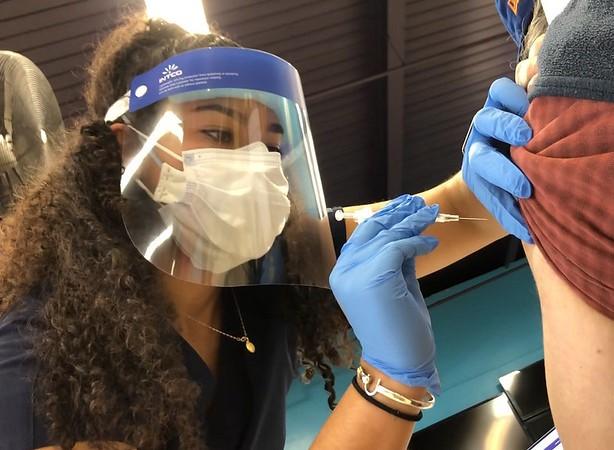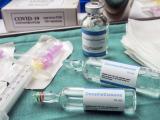Three doses of the Moderna mRNA COVID-19 vaccine were more effective against infection with the SARS-CoV-2 Delta variant than against Omicron but were highly protective against hospitalization with either subtype, according to a study yesterday in Nature Medicine.
A team led by Kaiser Permanente Southern California researchers conducted a test-negative case-control study among 26,683 COVID-19 cases caused by the Delta or Omicron variants in December 2021. Of all cases, 16% were Delta, and 84% were Omicron. The incidence of Omicron infections in Southern California increased from 1.2% to 94.1% from Dec 6 to 31.
Higher effectiveness against Delta infection
One dose of vaccine was 56.7% effective (95% 95% confidence interval [CI], 40.7% to 68.4%) against Delta infection and 20.4% effective (95% CI, 9.5% to 30.0%) against Omicron.
Vaccine effectiveness (VE) of two doses of the Moderna COVID-19 vaccine against Omicron infection was 44.0% (95% CI, 35.1% to 51.6%) at 14 to 90 days but fell quickly. Three doses, however, resulted in a VE of 93.7% (95% CI, 92.2% to 94.9%) against Delta at 14 to 60 days and 86.0% (95% CI, 69.7% to 73.4%) after 60 days.
Against Omicron infection, VE after three doses was 71.6% (95% CI, 69.7% to 73.4%) at 14 to 60 days and 47.4% (95% CI, 40.5% to 53.5%) after 60 days.
Three doses were 29.4% effective (95% CI, 0.3% to 50.0%) against Omicron infection among 30 people with compromised immune systems, compared with 75.5% in their non-immunocompromised counterparts. An analysis that excluded people with impaired immune systems showed a three-dose VE against Omicron infection of 51.2% (95% CI, 44.2% to 57.3%) after 60 days.
The full three-dose vaccine regimen was 70.9% effective (95% CI, 68.9% to 72.9%) against Omicron infection in participants older than 65 years, while it was 64.3% among their younger peers. VE after the same regimen against Omicron infection in COVID-naïve patients older than 65 years was 70.1% (95% CI, 68.0% to 72.1%), while it was 64.5% (95% CI, 54.9% to 72.1%) in younger patients.
All 4 hospitalized patients had chronic diseases
VE against hospitalization with Delta or Omicron infection after three doses was greater than 99% across the study population. Of the four patients hospitalized with Omicron infections who had received three COVID-19 vaccine doses, all were older than 60 years and had chronic diseases; one had a compromised immune system.
The researchers said that waning VE against Omicron infection within 3 months after the second dose suggests that a shorter interval between the second and third doses could boost immunity. People with compromised immune systems also need continued follow-up, they added.
"Lack of protection against Omicron infection in the immunocompromised population underscores the importance of monitoring the effectiveness of the recommended fourth dose (booster) for this population," they wrote. "Continued monitoring of VE against Omicron infection and hospitalization in immunocompetent and immunocompromised individuals and surveillance for the emergence of new SARS-CoV-2 variants are warranted to inform future vaccination strategies."





















